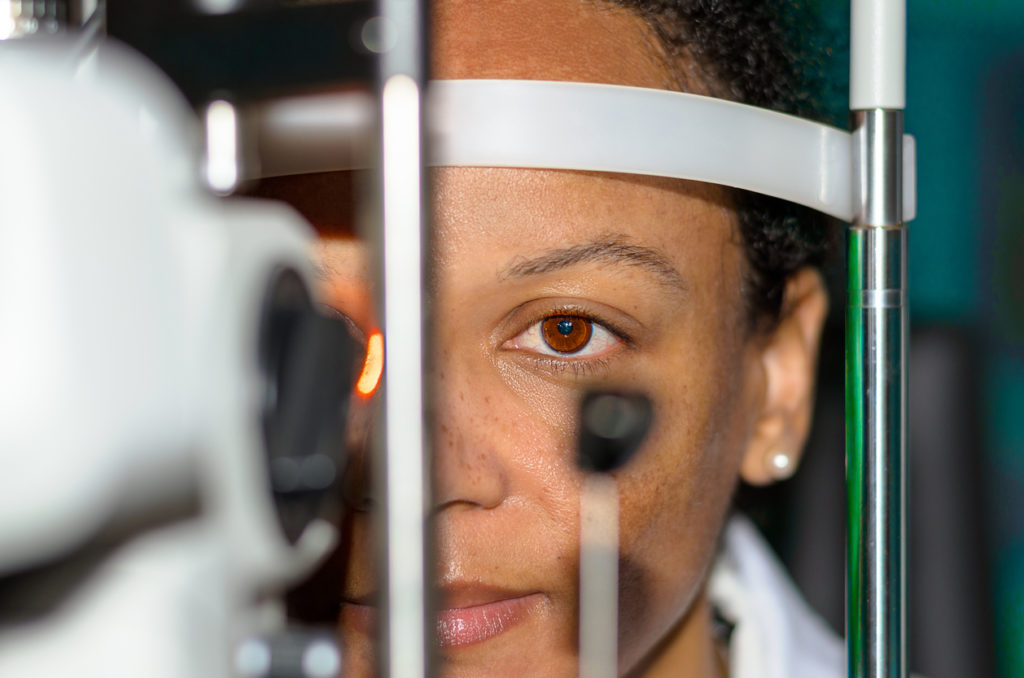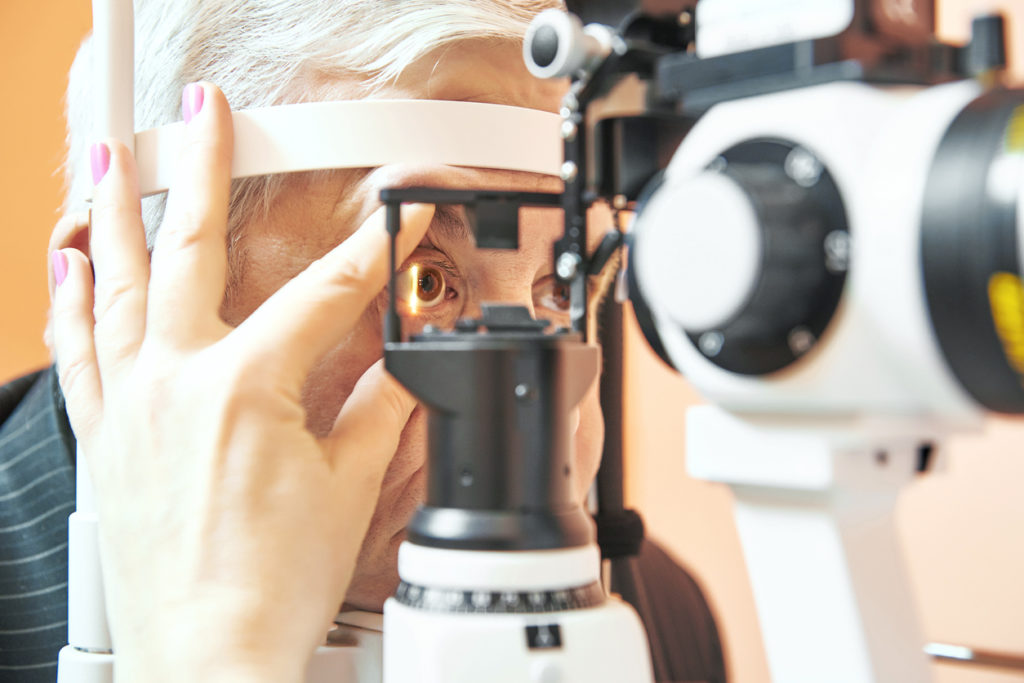Glaucoma Treatment Dallas, Texas
What is glaucoma?
 Glaucoma is a group of eye disorders that involve fluid and pressure in the eye. This pressure damages the eye’s optic nerve, usually as a result of fluid building up in the front part of the eye. The fluid normally exits the eye in a continuing stream, but if a person has glaucoma the fluid is blocked and pressure builds. Over time, this damages the optic nerve, affecting eyesight. At Infinity Vision Dallas, our team specializes in diagnosing and treating patients with glaucoma in the Dallas, TX area
Glaucoma is a group of eye disorders that involve fluid and pressure in the eye. This pressure damages the eye’s optic nerve, usually as a result of fluid building up in the front part of the eye. The fluid normally exits the eye in a continuing stream, but if a person has glaucoma the fluid is blocked and pressure builds. Over time, this damages the optic nerve, affecting eyesight. At Infinity Vision Dallas, our team specializes in diagnosing and treating patients with glaucoma in the Dallas, TX area
Glaucoma Symptoms
While some patients may experience symptoms from glaucoma as the disease progresses, others do not learn they have the condition until they undergo a routine eye exam at Infinity Vision Dallas in Texas. There are several different exams performed to diagnose glaucoma, including a visual field and visual acuity test.
These tests measure peripheral vision and how well patients can see at various distances. Other tests may also be performed, such as tonometry to measure the pressure inside the eye, pachymetry to measure the thickness of the cornea, and Ocular Coherence Tomography (OCT) to measure the thickness of the nerve fiber layer.
The good news is that glaucoma can be treated successfully. Regular follow up with measurement of eye pressure, visual field examinations, and optic nerve evaluation along with compliance with medical therapy are essential to maintaining good vision.
Who gets glaucoma?
Anyone can develop glaucoma, but there are a variety of risk factors that make a person more likely:
- Having high intraocular pressure
- Being over age 60
- Being black, Asian, or Hispanic
- Having a family history of glaucoma
- Having other medical conditions, such as diabetes, high blood pressure, heart disease, or sickle cell anemia
- Having corneas that are thin in the center
- Being extremely nearsighted or farsighted
- Having had an eye injury
- Having had certain types of eye surgery
- Long-time use of corticosteroid medications, particularly eye drops
What causes glaucoma?
Our eyes are filled with a fluid called aqueous humor. In a normal eye, this fluid flows through the eye and exits through an area of tissue known as the trabecular meshwork. The trabecular meshwork is found where the iris and cornea meet. Glaucoma occurs when a person’s trabecular meshwork develops a blockage or other damage, or when the eye overproduces aqueous humor. As the fluid builds, the pressure in the eye builds with it. If this pressure remains elevated it begins to damage the optic nerve, which will show itself in the development of blind spots in the patient’s field of vision.
Will I go blind from glaucoma?
If left untreated, glaucoma will eventually lead to blindness. Glaucoma is the second leading cause of blindness in the United States, trailing only macular degeneration. However, treatment with Dr. Russell and our team at Infinity Vision can lower the pressure in the eye and stem vision loss. Still, even with treatment, about 15 percent of people with glaucoma become blind in at least one eye.
Treatment for Glaucoma

- Eye drops are used to reduce fluid production in the front of the eye or to help drain excess fluid but can lead to redness, stinging, irritation or blurry vision. Patients should tell their doctor about any allergies they have to minimize the risk of side effects.
- Laser surgery for glaucoma aims to increase the outflow of fluid from the eye or eliminate fluid blockages through laser trabeculoplasty (SLT / ALT), iridotomy or cyclophotocoagulation.
- Microsurgery involves a surgical procedure called a trabeculectomy, which creates a new channel to drain fluid from the eye and reduce the pressure that causes glaucoma. Surgery is often performed after medication and laser procedures have failed. Trabeculectomy can now be performed more precisely with the use of a stent called an ExPress Mini Shunt. This mini shunt standardizes the flow of fluid out of the eye and decreases the side effects of glaucoma surgery.
Can glaucoma be prevented?
 Unfortunately, there isn’t a way to prevent glaucoma. But you can prevent significant damage to your vision through regular eye exams and early treatment. That’s the evil thing about glaucoma — in its most prevalent form, primary open-angle glaucoma, there are no symptoms and vision loss is slow and progressive. The first vision loss will usually occur in the peripheral vision.
Unfortunately, there isn’t a way to prevent glaucoma. But you can prevent significant damage to your vision through regular eye exams and early treatment. That’s the evil thing about glaucoma — in its most prevalent form, primary open-angle glaucoma, there are no symptoms and vision loss is slow and progressive. The first vision loss will usually occur in the peripheral vision.
But during your regular eye exams with us at Infinity Vision, we can spot glaucoma early and we can work to keep the pressure from building in the eye and damaging the optic nerve. Early diagnosis is key to preventing damage to your vision.
Contact Infinity Vision in Dallas, Texas for Glaucoma diagnosis and treatment at (214) 522-2661 or fill out a Contact Form here.




